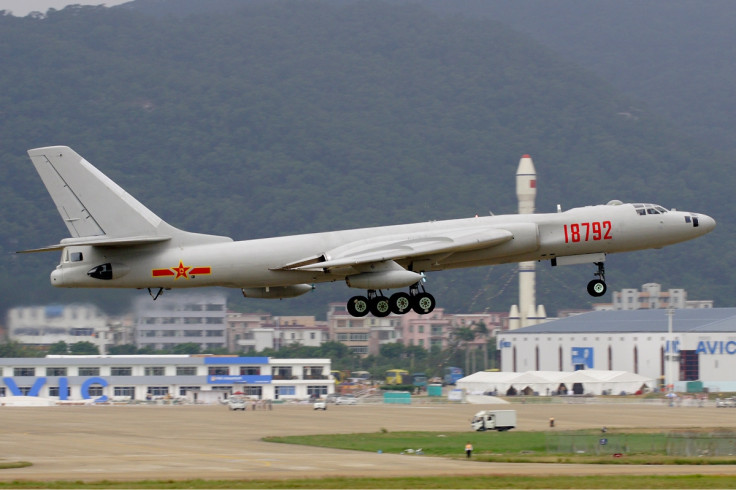China stubborn about flying warplanes near Taiwan and Japan ignoring 'obstructions'
The aggressive stance comes following reports that the Chinese air force flew warplanes near Taiwan and Japan.
China has yet again taken a stubborn approach over its military activities far out at sea where it clashes with neighbouring states like Taiwan and Japan. It says the air force will ignore whatever "obstructions" come its way and continue its combat drills at sea.
The aggressive stance comes following reports that Chinese warplanes flew near Taiwan and Japan, sailed an aircraft carrier through the Taiwan Strait and conducted drills, earlier this month.
This is reported to be the first time the Chinese air force has commented about the incident after it confirmed conducting "multiple" long-range drills in waters near Taipei, while fighters and bombers also flew near the Taiwan air defence zone and near Japan.
"The air force's distant sea training has become normal, systemic and practical," Chinese broadcaster CCTV quoted air force spokesman Shen Jinke as saying late on Thursday (27 July).
He noted that China's high-sea drills have increased in frequency over the past years, and that the operations "have faced and dealt with a variety of forms of interference and obstruction, but no matter the obstruction we will carry on just as in the past," Shen said.
He also defended that such flights are legal and reasonable and that the country never targeted any specific country or region.
"No matter who shadows us we will fly often and frequently," he said, adding that the flights were legal and reasonable.
In a show of force against Japan, China, on 13 July, flew six long-range Xian H-6 nuclear-capable bombers between the Japanese islands of Miyako and Okinawa, to the northeast of Taiwan, which China claims as its own.
When Japan protested about the military exercise, Beijing warned Tokyo that it should "get used to" its military exercises instead of protesting.

Beijing is known to conduct military exercises by flying its warplanes into western Pacific waters through international airspace and the Miyako Strait is one of the routes that it uses.
China began its long-range flight drills at sea three years ago. And its flights have always raised concerns among its neighbours.
Earlier this week, Taiwan issued a strongly worded statement in response to China's recent flybys and its dominance of the self-ruled island nation, saying it can defend itself and will "not back down" should the mainland choose to use military force to resolve problems between the two sides.
© Copyright IBTimes 2025. All rights reserved.





















